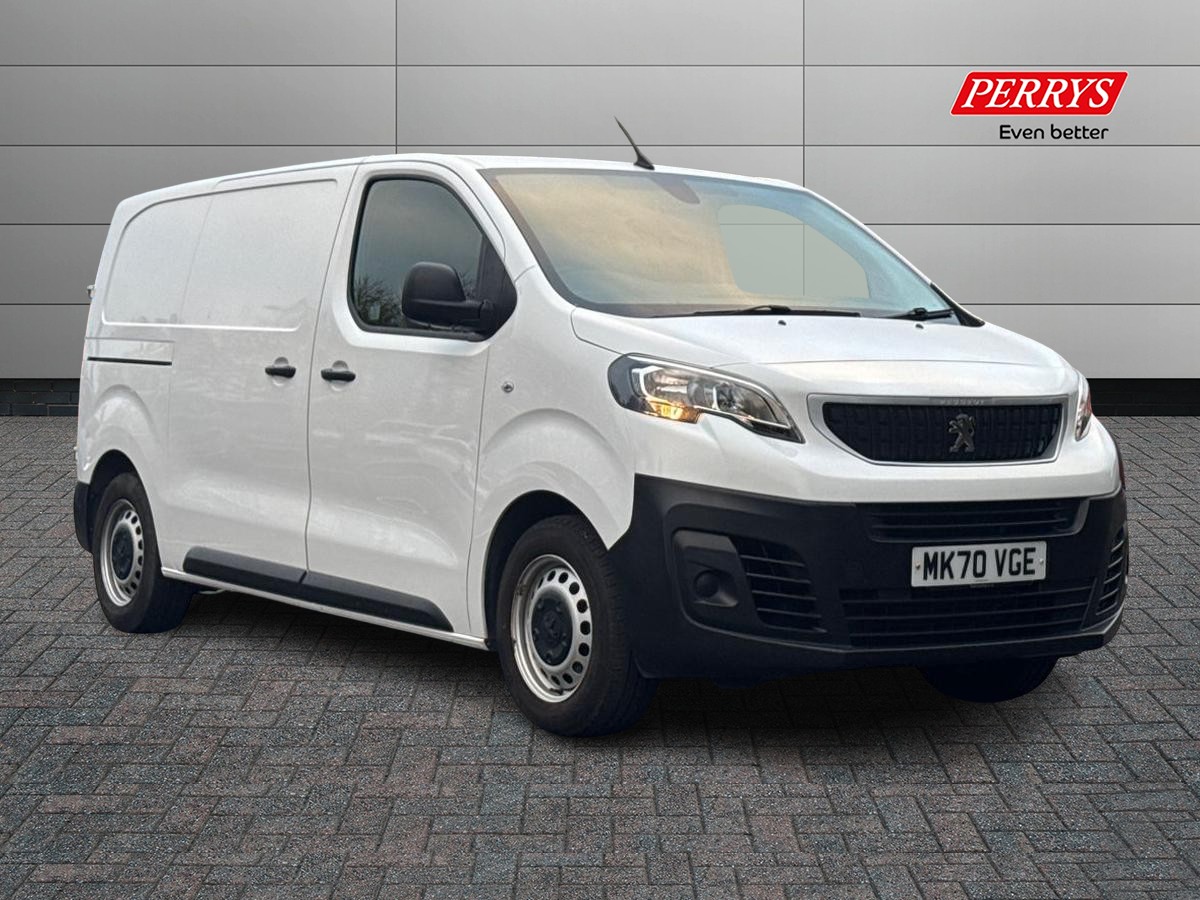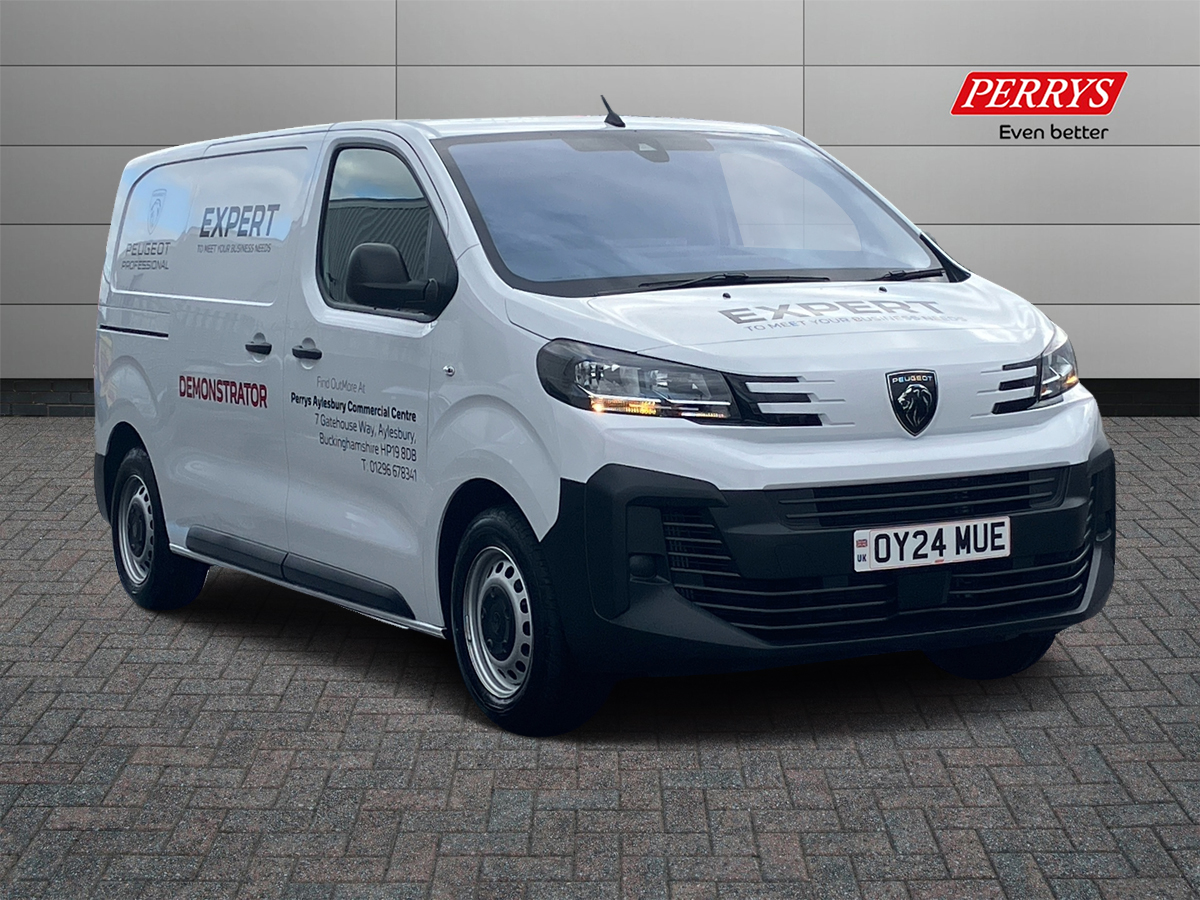Used Peugeot Expert for sale: everything you need to know
If style, frugal engines and a high payload rating are what you seek in a van, then the Peugeot Expert could be the model you’re after. It scores well on all counts and while there are more rounded options in the mid-sized panel van market, the Expert is far from being a bit-player.
If the van has limitations, it’s that you don’t get as many length options as some rival vans offer, and there’s just one roof height. But on the flip side, Peugeot is up to speed on offering electric options, with a pair of battery sizes, and a clever Moduwork bulkhead, which allows you to use some of the passenger compartment for longer loads, makes up in part for the limited body styles.
The Peugeot Expert has a couple of siblings in the form of the Citroen Dispatch, Toyota Proace, and from 2019-onwards, the Vauxhall Vivaro, but the most notable players in this market are the best-selling Ford Transit Custom, and the Volkswagen Transporter - both of which should certainly be on your shopping list for vans of this size.
Should you buy a Peugeot Expert?
The Peugeot Expert has been around since 1995, but over that time and across three generations it’s grown from being a relatively compact van into a true rival for established players like the Ford Transit and Volkswagen Transporter. And while we don’t rate it quite as highly as its Ford or VW rivals, the Expert still has several strings to its bow.
It’s a good-looking van for a start, with a hint of the style you’ll see in its maker’s road cars. The cabin is well laid-out too, with plastics that are clearly designed to be durable rather than touchy-feely - a merit for some, but perhaps a demerit for others. Peugeot offers a wide range of seat adjustment too, though that feature is let down slightly by a driving position that’s offset from the pedals, and a seat that doesn’t quite go far enough back for taller drivers.
If the driver doesn’t quite get the full five-star experience in the Peugeot Expert, then the payload gets a lot closer. The ability for some models to haul more than 1400kg is useful indeed, and even the standard body model can carry three Euro-pallets. A clever Moduwork bulkhead system is available for only £150 on all models (though not on earlier S versions), which is essentially a hatch that allows you to load longer items through into the cabin, and increases load capacity by around half a cubic metre.
What Peugeot doesn’t offer is the option of a taller body, which ultimately limits its load-carrying compared to some rivals, but you do at least get twin sliding doors, two side-hinged rear doors, and there’s a six-seat crew van available too, in both standard and long bodies.
The 1.5-litre and 2.0-litre diesels are frugal, and Peugeot offers a pair of electric models too, differing by their battery size - a 50kWh model with a maximum range of just under 150 miles, and a 75kWh version capable of going just over 200 miles. The Expert drives well regardless of version - something perhaps linked to it sharing some of its underpinnings with Peugeot’s 308 family hatchback.
The big players in the Expert’s class are the Ford Transit Custom and Volkswagen Transporter. Both are more accomplished overall and importantly, have more options for body size than the Peugeot, notably in terms of height. They’d still be our pick, but don’t discount the Peugeot (nor its Citroen Dispatch, Toyota Proace and Vauxhall Vivaro cousins) entirely.
A Peugeot Expert not for you? We've got 1000s of used vans for sale to suit all budgets and needs
What’s the best used Peugeot Expert model to buy?
Since the basic Peugeot Expert is now in Professional Premium+ trim, that’s the one to go for among the most recent models. It’s comprehensively equipped as standard, and the Asphalt Premium+ doesn’t offer a great deal on top that you’d really need. Among used models, regular Professional spec is worth seeking out, since it offered air conditioning over the basic S model, as well as parking sensors and a touchscreen infotainment system.
As far as engines are concerned, aim for one of the 2.0-litre BlueHDi diesels. The extra power and torque is useful particularly if you tend to shuttle around heavier loads, and the real-world step down in economy won’t be too noticeable. If you and your business tend to operate just around town though, the e-Expert may be worth a look. The range is reasonable (empty, at least), and EV power makes them a doddle to drive.
Used Peugeot Expert fuel economy and performance
- Peugeot Expert BlueHDi 100 S&S: The basic diesel engine in the Expert is a 1.5-litre four-cylinder turbocharged unit, making 100PS and coming with a 6-speed manual gearbox as standard. It also has stop-start tech, as per the name, makes 102PS, tops out at 90mph, and can do up to 45.3mpg.
- Peugeot Expert BlueHDi 145: A larger 2.0-litre diesel powers the BlueHDi 145, with 144PS. There is no stop-start tech, but a six-speed manual gearbox is standard. Top speed is 106mph, and it’ll do up to 38.7mpg combined.
- Peugeot Expert BlueHDi 145 S&S: Stop-start technology and an 8-speed automatic gearbox differentiate this version from the model above. Top speed is the same, but fuel economy rises a little to 39.6mpg combined.
- Peugeot e-Expert 50kWh: Both Peugeot e-Expert models make the same 136PS, but the smaller 50kWh model offers slightly better performance against slightly lower range: 0-62mph takes 13.1 seconds, top speed is limited to 81mph, and Peugeot quotes a maximum 148 miles on a charge.
- Peugeot e-Expert 75kWh: With another 50 per cent capacity the 75kWh battery allows a range of up to 211 miles, but extra weight sees the 0-62mph time drop to 14.3 seconds. Top speed is the same 81mph.
What used Peugeot Expert trim levels are available?
In the current range the Peugeot Expert has an impressive level of standard equipment, with basics like air conditioning and a touchscreen infotainment system that not all rivals offer as standard on their base models. A two-tier range keeps things simple too, though like many other vans, it’s possible to delve deeply into an options list, so certainly when buying used, you may find few Experts are exactly alike in terms of kit.
- The Peugeot Expert Professional Premium+ is pretty well-equipped for an entry-level model. Air conditioning, cruise control, rear parking sensors, a height/rake/reach/lumbar-adjustable driver’s seat and a 7-inch touchscreen with Apple CarPlay and Android Auto are all standard. Electric versions also get a heated seat and electric handbrake.
- The Peugeot Expert Asphalt Premium+ adds folding and heated door mirrors, a leather steering wheel, rear parking camera, fog lights and LED daytime running lights, TomTom navigation for the touchscreen (with three years of updates), and automatic lights and wipers.
Used Peugeot Expert dimensions and boot size
The Peugeot Expert’s dimensions are:
- Length: 4959mm (Standard), 5309mm (Long)
- Width: 1920mm (without mirrors), 2204mm (with mirrors)
- Height: 1899mm (1000kg payload), 1940mm (1400kg payload)
- Ground clearance: N/A
The Peugeot Expert’s load capacity is:
- 5.3 cubic metres (Standard)
- 5.8 cubic metres (Standard with Moduwork)
- 6.1 cubic metres (Long)
- 6.6 cubic metres (Long with Moduwork)
Used Peugeot Expert road tax
Vans don’t have a tiered VED or ‘road tax’ system, unlike cars. That means the Peugeot Expert will cost you the same annual flat rate of £320 for the 2023/2024 tax year (or £176 for six months). The exception to this is the e-Expert, which is, for the time being at least, free to tax.
How much is it to insure a Peugeot Expert?
The cheapest Experts to insure should be the BlueHDi 100 models in standard length and in either trim level, which sit in group 37. BlueHDi 145s start from group 40 (including for the crew cab vans), while the e-Expert starts in group 41 for a standard body and group 42 for a long body model.
Read our full Peugeot Expert review


